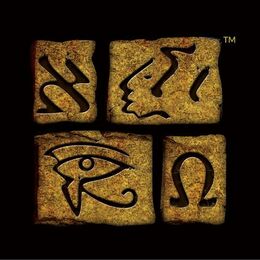
FAIR is a non-profit organization dedicated to providing well-documented answers to criticisms of the doctrine, practice, and history of The Church of Jesus Christ of Latter-day Saints.

The Burrows Cave collection is a group of "artifacts" supposedly found in a cave in Illinois, named after Russell Burrows, the person who initially found the cave. To this day, Burrows Cave enthusiasts have never demonstrated the existence of the cave. The artifacts contain many obvious hallmarks of modern manufacture, including the so-called "mystic symbol" found on artifacts in the Michigan artifacts collection. This is offered as evidence that the hoaxers deliberately meant to associate these artifacts with the Michigan collection. Some LDS people have fallen prey to those who push these artifacts as genuine.
As one author notes, there are no known caves in the proper area of Illinois--the geology isn't right:
In the May 2012 issue of Public Archaeology, Joseph Wilson, a University of New Haven anthropologist, describes it as a phantasmagorical cave in southern Illinois that contains “life-sized solid-gold statues and a series of gigantic black stone statues in Egyptian and Carthaginian dress, solid gold sarcophagi and coffins containing mummies, stone sarcophagi, pagan idols, arsenals of bronze weapons, suits of armor ...” It goes on, but you get the idea.
Why haven’t you read about this amazing discovery in National Geographic? Burrows Cave has been largely ignored by archaeologists because there is no evidence to back up any of the extravagant claims made about the site.
In fact, Wilson observes that “there is no geological evidence of any caves” in that part of Illinois. Not surprisingly, the guy who claims to have discovered Burrows Cave has never allowed anyone else to see it. [1]
If we cannot confirm that a cave exists, and experts cannot even visit the cave, we ought to put no trust in its claims until they can be publicly demonstrated.
Tablets that reportedly come from the cave are also not plausible:
Wilson says that thousands of inscribed stone tablets that were supposedly taken from the cave have been sold to “hopeful collectors and sympathetic research institutions such as the Midwestern Epigraphic Society in Ohio.”
Wilson says the tablets are obvious fakes. They include a weird mix of styles representing cultures separated by thousands of years. For example, one tablet has an image of an apparently Phoenician ship that is a carelessly copied, ridiculous mash up of two entirely different kinds of vessel — one end is the front of a warship with a ram, and the other is the front of a merchant ship with a carved animal-head at the prow. [2]
The Burrows Cave claims and artifacts should not be used as evidence of the Book of Mormon's account or of other aspects of ancient history.

FAIR is a non-profit organization dedicated to providing well-documented answers to criticisms of the doctrine, practice, and history of The Church of Jesus Christ of Latter-day Saints.
We are a volunteer organization. We invite you to give back.
Donate Now